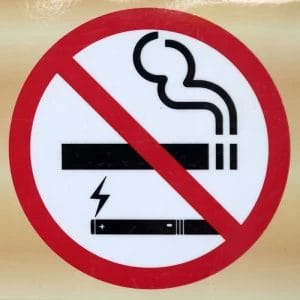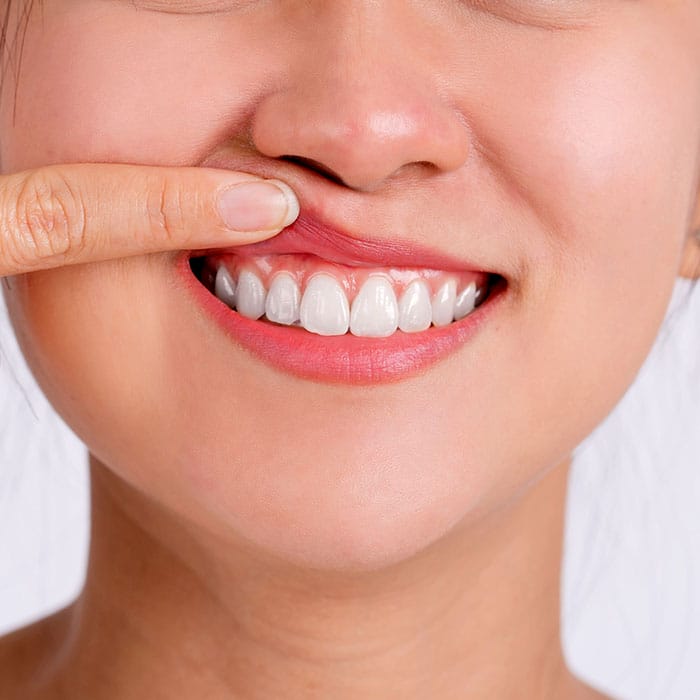SMOKING and VAPING and dental health don’t mix. They damage every organ and system in the body, including teeth and gums. We usually think of lung cancer first when it comes to the harm smoking can do, but it can cause a wide variety of problems for oral health.
Tobacco and Oral Cancer
Four out of every five people diagnosed with oral cancer either smoke or chew tobacco. The early symptoms of oral cancer include unusual white patches in the mouth, persistent mouth sores or pain, numbness, swelling, difficulty chewing and swallowing, and the sensation of having something stuck in the throat. The dentist is a key figure in early detection of oral cancer.
A Strange Effect of Smoking: Smoker’s Keratosis
In some cases, a smoking habit can cause white patches to develop on the roof of the mouth. They typically aren’t painful, but they can be pre-cancerous. These patches are smoker’s keratosis (or stomatitis nicotina), and the condition is still a mysterious one. The prevailing theory is that the white patches are the result of inflamed mucous glands.
The Risk of Gum Disease Goes Up for Smokers
Up to half of all adults over 30 have some level of gum disease, but a smoking habit both doubles the risk of developing it and makes it harder to treat. Untreated gum disease can lead to serious damage to the gum tissue, bone loss in the jaw, and loss of teeth. Particularly severe cases can even be life-threatening if the oral bacteria reach the bloodstream through the inflamed gums. This is why smoking and vaping and dental health do not go hand in hand.
Vaping: Not Really Safer
Vaping and e-cigarettes tend to be portrayed as a healthier alternative to smoking, but the vapor still contains ultra-fine toxic chemicals, heavy metals, and nicotine.
Nicotine, no matter how it is packaged, reduces blood flow, which can affect the teeth and gums by making the gum tissue less healthy. Gum recession and tissue death can result. It also reduces saliva production, leading to dry mouth (which comes with a wide array of problems from bad breath to tooth decay), and it can trigger teeth grinding, which damages teeth.
Secondhand Smoke Is Also Harmful
Smokers sometimes claim that the only person they’re hurting with their habit is themselves, and they’re willing to accept the health risks. This, unfortunately, is not accurate. Studies suggest a link between cavities (in both baby teeth and adult teeth) and regular exposure to secondhand smoke, and broader secondhand smoke health risks are particularly serious for infants and small children, ranging from asthma attacks to infections to SIDS.
The Benefits of Quitting Smoking
A longtime heavy smoker might believe that they’ve already damaged their health beyond the point of return with their habit, so what’s the point of quitting? No matter how long and heavily someone has smoked, quitting can still improve their health outlook. It’s better to not start smoking in the first place, but quitting is worth it, and it’s never too late to start.
There Are Many Resources to Help Quit Smoking
No addictive habit is easy to quit, but having help and resources makes it easier. Having the support of family, friends, and counselors can go a long way, and there’s also great information available online. Another good resource is the dentist! If you’re a smoker, schedule regular dental exams to keep a close eye on your oral health. In fact, many smokers need more than 2 teeth cleanings a year. Also, make sure to keep up with daily brushing and flossing!
All About You Dental Care loves seeing our patients healthy!
Top image used under CC0 Public Domain license. Image cropped and modified from original.








